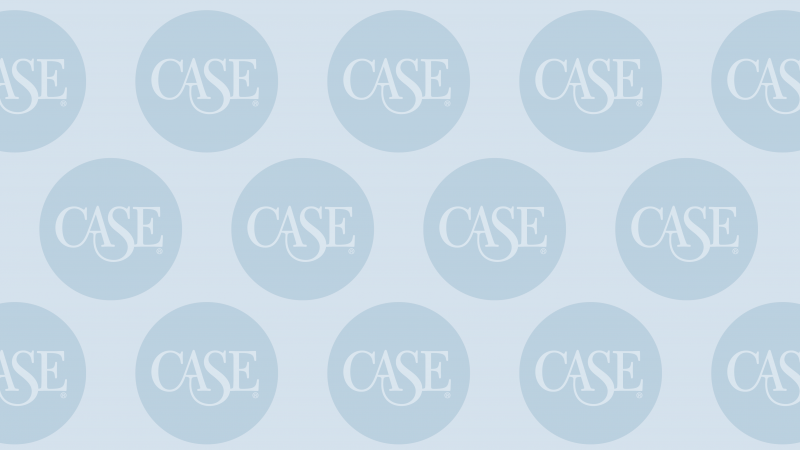Charitable Deduction
For more than 100 years, the charitable deduction has encouraged individuals to make significant, transformational gifts to educational institutions. However, a study by Indiana University Lilly Family School of Philanthropy found that the percentage of Americans who give to charity has fallen
from two-thirds in 2000 to just 49.6 percent in 2018. Following the enactment of the Tax Cuts and Jobs Act of 2017, approximately 90 percent of Americans, particularly middle- and low-income taxpayers, are not incentivized to give more because they do not itemize their tax returns and therefore cannot deduct their charitable donations.
In 2020, middle- and low-income taxpayers received temporary access to giving incentives when Congress enacted a non-itemizer charitable deduction in the wake of the COVID-19 pandemic. That non-itemizer deduction expired at the end of 2021, but in the time it was available, giving trends saw a positive uptick, with both the number of donors and gifts, especially small gifts, increasing in 2020 and 2021.
Restoring and expanding the non-itemizer charitable deduction will allow all taxpayers, regardless of their income, to deduct charitable gifts, helping educational institutions continue raising the funds they need to achieve their missions.
Click here for a snapshot of how giving supports higher education in the U.S.
Legislation and Policy Issues on the Charitable Deduction
Charitable Giving is Evolving
Charitable Giving is Evolving.
The first major change to the tax treatment of charitable gifts was the Tax Cuts and Jobs Act of 2017 (TCJA). The TCJA:
- Lowered the top individual rate from 39.6 percent to 37 percent and doubled the standard deduction threshold to $12,000 for individuals and $24,000 for married couples. This means that only roughly 11 percent of American taxpayers will itemize and therefore benefit from the charitable deduction.
- Allows taxpayers to deduct cash contributed to public charities like colleges, universities, and independent schools up to 60 percent of their Adjusted Gross Income per tax year, up from 50 percent under previous law. The limit of 30 percent of AGI for capital gain property remains unchanged.
- Repealed the special rule that allows taxpayers to deduct 80 percent of a charitable gift made for the right to purchase tickets for college and university athletic events.
The second major change to the tax treatment of charitable gifts was the enactment of a temporary non-itemizer charitable deduction.
In response to the COVID-19 pandemic, Congress enacted a $300 charitable deduction for non-itemizing taxpayers for 2020. This non-itemizer charitable deduction was extended and expanded to $600 for joint filers through 2021. However, the provision expired at the end of 2021 and has yet to be restored.
Most recently, Senators James Lankford (R-OK) and Chris Coons (D-DE) and Representatives Blake Moore (R-UT), Danny Davis (D-IL), Michelle Steel (R-CA), and Chris Pappas (D-NH) introduced the Charitable Act (S. 566, H.R. 3435), which would expand and renew the non-itemizer charitable deduction so all taxpayers can deduct at least some of their charitable gifts.
Impact on Educational Institutions
The TCJA significantly reduced the number of taxpayers who itemize their tax returns (from roughly 30 percent of taxpayers to about 11 percent), effectively eliminating the charitable deduction for 89 percent of Americans. This decrease in eligible taxpayers accelerated the already troubling philanthropic trend of fewer Americans giving to charity. Consequentially, the Tax Cuts and Jobs Act law increased the cost of giving for donors to educational institutions, particularly donors who give to the institution's annual fund.
Conversely, the temporary non-itemizer charitable deduction meant every taxpayer, regardless of whether they take the standard deduction or itemize, received a tax benefit for their generosity. Following its expiration at the end of 2021, data from the Fundraising Effectiveness Project shows charitable giving declined 1.7 percent in 2022 compared to 2021 and the number of donors declined 10 percent compared to 2021, with the largest declines coming from donors giving $500 or less.
Charitable donations help colleges, universities and independent schools achieve their teaching, research and public service missions. As federal and state governments continue to cut funding for higher education, raising private support from individuals has become even more crucial for colleges and universities.
Educational institutions and those we serve can't afford to wait and see how this will impact their funding for financial aid, critical research, and teaching.
CASE Position
CASE supports preserving the full value of the charitable deduction and restoring a charitable deduction available to all taxpayers. As such, CASE supports the Charitable Act (S.566, H.R. 3435) introduced by Senators James Lankford (R-OK) and Chris Coons (D-DE) and Representatives Blake Moore (R-UT), Danny Davis (D-IL), Michelle Steel (R-CA), and Chris Pappas (D-NH). The Charitable Act would restore a non-itemizer charitable deduction valued at up to one-third of the standard deduction (around $4,500 for individual filers and around $9,000 for joint filers) available to all taxpayers for 2023 and 2024.
Resources
- The Charitable Act (S. 566, HR 3435)
- Charitable Giving Coalition
- Quarterly Fundraising Report, Fundraising Effectiveness Project, April 2023
- Polling on Support for a Universal Charitable Deduction, Independent Sector, September 2022
- Giving USA 2022
- The Charitable Deduction for Individuals, Congressional Research Service Report, March 2022
- The Tax Cuts and Jobs Act and Charitable Giving by Select High-Income Households, American Enterprise Institute, April 2022
- Latest Data Shows New Low in Share of Americans Who Donated to Charity, Indiana University Lilly School of Philanthropy, July 2021
- Values-Based Messaging on Giving Policy, Independent Sector and TargetPoint Consulting, May 2019
- Charitable Giving and the Tax Cuts and Jobs Act, American Enterprise Institute, June 2018
Back to U.S. Advocacy & Policy Resources
